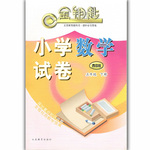题目内容
They say after a parent dies,the surviving children can take on some of their parent’s characteristics. I 1 becoming anything like my dad for years 2 I wanted to be me,not him;but there I sat at his memorial service several months ago,telling myself, “You’ve 3 a lot more of your dad in you than you think. ”
There is this phrase my dad 4,and I know I’m going to sound 5 to complain about it,but it used to 6 me. “I am so proud of you”’ he told us kids,whether we’d won a race or helped others. That should be a (n) 7 thing,but here’s what always 8 my mind: “You are taking credit for what isn’t really yours. You can be proud,but the 9 is mine. ”
Your parent is doing his best to give you 10,but you do not 11 it. “I’m so proud of you. ” It came out of my dad’s mouth 12 ,on those calls where I might have 13 something that happened at work or when he and Mum came to visit and we 14 the talents of our two boys. I knew the feeling of parental 15 well,especially when my boys achieved in ways that were 16 my comprehension and ability,but I looked for other ways to 17 it. “That’s an extremely good story you’ve written!” I would say about the composition. I thought that by making my praise 18,it would feel like I was claiming their achievement less as mine and more as one they could own themselves.
So just the other day when my older son sent me an e-mail about his scholarship,I searched for 19 things to say,but finally I 20 he doesn’t need my cleverness. He just wants what my dad gave me. “I'm so proud of you ,” I wrote. Just like the old man to me.
( ) 1. A. insisted B. resisted
C. considered D. meant
( ) 2. A. if B. until
C. though D. because
( ) 3. A. remembered B. explained
C. missed D. got
( ) 4. A. used B. created
C. changed D. translated
( ) 5. A. interesting B. funny
C. silly D. rude
( ) 6. A. worry B. harm
C. bother D. reward
( ) 7. A. basic B. good
C. difficult D. important
( ) 8. A. opened up B. went through
C. tested out D. broke down
( ) 9. A. adjustment B. enjoyment
C. achievement D. assignment
( ) 10. A. praise B. comment
C. support D. information
( ) 11. A. win B. offer
C. accept D. hear
( ) 12. A. in no time B. ahead of time
C. all the time D. for a time
( ) 13. A. complained B. written
C. forgotten D. mentioned
( ) 14. A. showed off B. depended on
C. found out D. drew out
( ) 15. A. control B. choice
C. responsibility D. pride
( ) 16. A. beyond B. near
C. below D. about
( ) 17. A. feel B. express
C. take D. analyze
( ) 18. A. scientific B. reliable
C. specific D. logical
( ) 19. A. personal B. powerful
C. clever D. secure
( ) 20. A. believed B. realized
C. proved D. suggested
[文章大意]本文讲述作者讨厌父亲一成不变的"我以你为豪"的夸奖。后来自己做了父母,努力让自己的表扬变得与众不同,但有一次大儿子通过邮件来告诉他奖学金的事时,他找不到合适的词来表达,原来儿子需要的不过是"我以你为豪"。
1. B insist坚持jresist抵抗;consider考虑;mean意味着。"我"抵制成为父亲那样的人,因为"我"想成为"我"自己而不是他。根据"I wanted to be me,not him…"可知选B项。
2. D if如果;until直到;though虽然;because因为。句意: "我"抵制成为父亲那样的人,因为"我"想成为"我"自己而不是他。两个分句之间是因果关系,故选D项。
3. D remember记得!explain解释;miss错过;get得到。句意:你已经得到比你认为的比你父亲还多的东西。根据倒数第二段提到"…it would feel like I was claiming their achieve?ment less as mine and more as one they could own them?selves. "可知选D项。
4. A句意:这有一个父亲经常用的短语,"我"知道"我"要是抱怨的话会听起来很粗鲁。根据but it used to me可知选A项。
5. D interesting有趣的;funny可笑的;silly蠢的;rude粗鲁的。句意:这有一个父亲经常用的短语,"我"知道"我"要是抱怨的话会听起来很粗鲁。
6. C worry担心;harm伤害;bother打扰;reward奖赏。句意:但它却经常困扰着"我"。故选C项。
7. B basic基本的;good好的;difficult困难的;important重要的。句意:这应该是件很好的事情,但"我"脑海中经常回荡着:功劳并不是你的,你可以骄傲但成就是"我"的。根据but 可知选B项。
8. B open up打开;go through经历;test out检査;break down 崩溃。句意:这应该是件很好的事情,但"我"脑海中经常回荡着:功劳并不是你的,你可以骄傲但成就是"我"的。根据句意选B项。
9. C adjustment调整;enjoyment快乐;achievement成就;as?signment任务。句意:这应该是件很好的事情,但"我"脑海中经常回荡着:你的功劳并不是你的,你可以骄傲但成就是"我" 的。根据句意选C项。
10. A praise表扬;comment评论;support支持;information信息。句意:你的父亲努力给你表扬但你并不接受。根据语境"I'm so proud of you.”可知选A项。
11. C win赢得;offer提供;accept接受;hear听到。句意:你的父亲努力给你表扬但你并不接受。根据句意选C项。
12. C in no time决不;ahead of time提前;all the time—直; for a time—段时间。"我以你为豪"这句话一直从"我"爸爸的嘴里说出来。根据语境可知选C项。
13. D complain抱怨;write写;forget忘i己;mention提至。"我"在电话里说到工作,且根据语境可知选D项。
14. A show off炫耀;depend on依靠;find out发现;draw out 取出。根据the talents of our two boys可知选A项。
15. D control控制;choice选择;responsibility责任;pride自豪。句意:"我"了解父母的自豪,尤其是当"我"的孩子取得一定成就时……。故选D项。
16. A beyond超过;near靠近;below在.... 下面;about关于。beyond my comprehension and ability超出我的理解与肯旨力。故选A项。
17. B feel感觉;express表达;take带走;analyze分析。但"我"会找其他的方式来表达。根据"That's an extremely good story you've written!I would say about the composi?tion. " 可知选B项。
18. C scientific科学的;reliable可靠的;specific特种的,具体的;logical逻辑的。根据句意选C项。
19. C personal个人的;powerful有力的;clever聪、明的;secure 安全的。根据he doesn't need my cleverness可知选C项。
20. B believe相信;realize意识到;prove证明;suggest建议。根据"He just wants what my dad gave me. 'I'm so proud of you”I wrote.”可知选B项。

 金钥匙试卷系列答案
金钥匙试卷系列答案